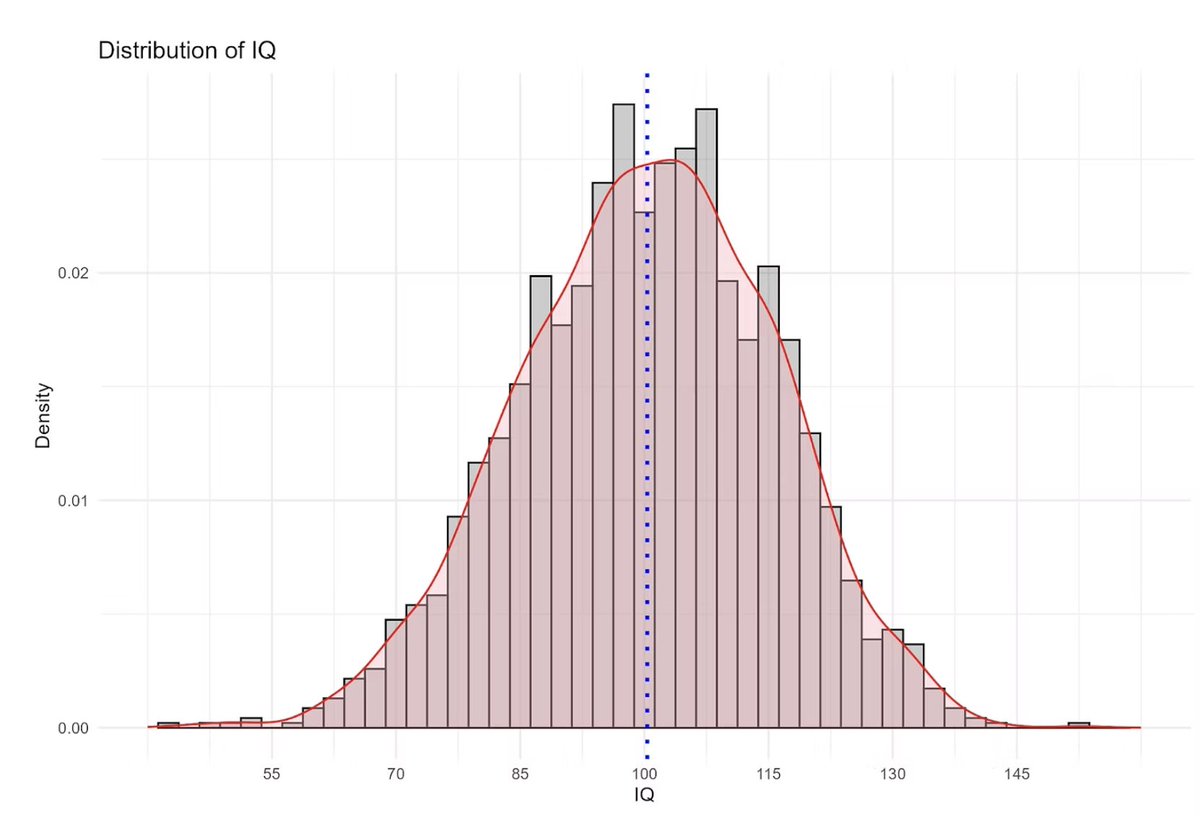
A mathematician/entrepreneur in social science. Tweets about psychology, society, rationality, tech, science, and philosophy. Founder of https://t.co/2YGraOwo77
7 subscribers
How to get URL link on X (Twitter) App




 The surface-level mystery has a simple answer: bisexual identification. Most of the increase in LGBTQ+ identity is from younger generations identifying more as bi. But this raises a deeper mystery:
The surface-level mystery has a simple answer: bisexual identification. Most of the increase in LGBTQ+ identity is from younger generations identifying more as bi. But this raises a deeper mystery: 


 First off, "Dunning-Kruger" is sometimes used to reference a 2nd related idea: that high-competence people *underestimate* their ability (the opposite of low-competence people)
First off, "Dunning-Kruger" is sometimes used to reference a 2nd related idea: that high-competence people *underestimate* their ability (the opposite of low-competence people)
 Overall, I identified 50 predictions about the future he'd made for which it was confirmable whether they'd been correct. I skipped predictions that were too ambiguous to judge.
Overall, I identified 50 predictions about the future he'd made for which it was confirmable whether they'd been correct. I skipped predictions that were too ambiguous to judge. 

 1st hypothesis: they know astrology doesn’t work and lie for profit. But that seems very unlikely: many rely on it themselves and do it for friends/family. While surely there are some charlatans, most seem totally and genuinely convinced. So, what else could explain their belief?
1st hypothesis: they know astrology doesn’t work and lie for profit. But that seems very unlikely: many rely on it themselves and do it for friends/family. While surely there are some charlatans, most seem totally and genuinely convinced. So, what else could explain their belief?

 Back in January, we ran a study trying to predict 37 facts about people's lives using their astrological sun signs (whether they are Pisces, Aries, etc.) While personality tests were able to predict these facts decently well, sun signs couldn't predict even a single 1 of them...
Back in January, we ran a study trying to predict 37 facts about people's lives using their astrological sun signs (whether they are Pisces, Aries, etc.) While personality tests were able to predict these facts decently well, sun signs couldn't predict even a single 1 of them... 


 Before I get into the results of the study, here's a pop quiz. See if you can tell which of these is real and which is a collective delusion (the answers are at the bottom of the thread):
Before I get into the results of the study, here's a pop quiz. See if you can tell which of these is real and which is a collective delusion (the answers are at the bottom of the thread):

 We all know that some things are determined by our genetics (nature) and some by our environment (e.g., nurture). But most things are somewhere in between.
We all know that some things are determined by our genetics (nature) and some by our environment (e.g., nurture). But most things are somewhere in between. 

 Small differences like this in averages are typically not noticeable or important. Most people are not in the tails.
Small differences like this in averages are typically not noticeable or important. Most people are not in the tails.
 Group 1: Oversimplifiers. These are people who greatly exaggerate the difference.
Group 1: Oversimplifiers. These are people who greatly exaggerate the difference.




 The scatter plot above reflects a correlation of r=0.2.
The scatter plot above reflects a correlation of r=0.2. 

